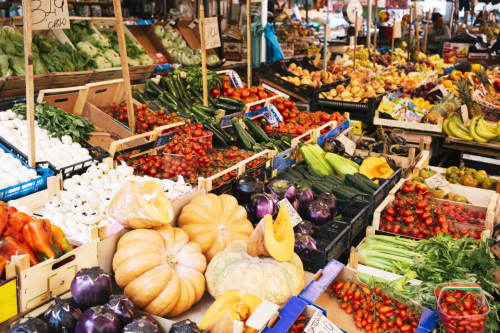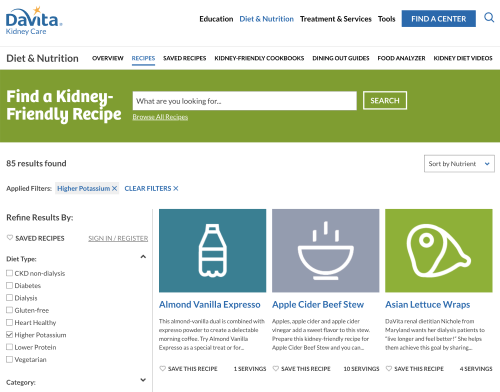When Potassium Level is Low

Potassium is an important mineral that every human body needs for almost everything it does, including proper kidney and heart function, muscle contraction and nerve transmission. This is why having a low potassium level can be as dangerous as having a high one. The acceptable potassium range in our blood is: 3.5 mg/dl-5.5 mg/dl.
When someone has a low potassium level in their blood, problems such as high blood pressure, depletion of calcium in bones and increased risk of kidney stones can occur. Prolonged diarrhea or vomiting, laxative abuse, diuretic use, eating clay, heavy sweating, dialysis or using certain medications can also cause severe potassium deficiency. People with early stages of chronic kidney disease (CKD) may take diuretics to help remove extra fluid from the body, which can cause low levels of potassium. For people in later stages of CKD who are on dialysis, especially on peritoneal dialysis, the dialysis treatment may cause them to lose more potassium as well.
If your care team tells you that your blood potassium level is low, you might need a potassium supplement. However, if you want to avoid having another pill to take, you can also easily improve your low potassium level by eating more potassium-rich foods.
Most fruits and vegetables have potassium in them; however, there are many that have more potassium than others. Here is a list of high-potassium fruits and vegetables. Talk to your dietitian about how to incorporate these into your specific kidney diet.
High-Potassium Fruits and Vegetables
Avocado Oranges/Orange Juice
Banana Papaya
Beans Potatoes
Fresh beets Pumpkin
Chocolate Seeds
Coconut water or milk Spinach, cooked
Dried fruit Sweet Potato
Mango Tomatoes or tomato products
Melon Yams
Nuts
The following juices and waters are high in potassium and ready to consume, but keep in mind their fluid content as well as their sugar content, especially if you have diabetes.
High-Potassium Drinks
Florida’s Natural®:
Orange Juice, 450 mg potassium
Orange Strawberry Banana Smoothie, 580 mg potassium
Wild Berry Orange Smoothie, 530 mg potassium
Minute Maid®:
Premium Original Orange Juice, 450 mg potassium
Pure Squeezed Orange Juice, 450 mg potassium
Naked Juice®:
Berry Blast, 650 mg potassium
Bright Beets, 840 mg potassium
Green Machine, 760 mg potassium
Pomegranate Blueberry, 570 mg potassium
Odwalla®:
Blueberry Monster, 650 mg potassium
Original Super Food, 660 mg potassium
Strawberry Banana, 830 mg potassium
V8®:
Carrot Mango, 340 mg potassium
Original Low Sodium, 900 mg potassium
Vita Coco®:
Coconut water Lemonade, 420 mg potassium
Coconut Water Twist of Lime, 470 mg potassium
DaVita.com has easy recipes that are rich in potassium. Here are three to start out with.
Acai Berry Smoothie Bowl
There are many more high-potassium recipes to discover on DaVita.com. From the recipes search page, click on “Diet Type” on the left side of the page and select “Higher Potassium” to see them all.

Always talk with your doctor or dietitian to see if you need more potassium before consuming high levels of potassium.
Additional Kidney Diet Resources
Visit DaVita.com and explore these diet and nutrition resources:
DaVita Kidney-Friendly Recipes
This article is for informational purposes only and is not a substitute for medical advice or treatment. Consult your physician and dietitian regarding your specific diagnosis, treatment, diet and health questions.

Recent Comments